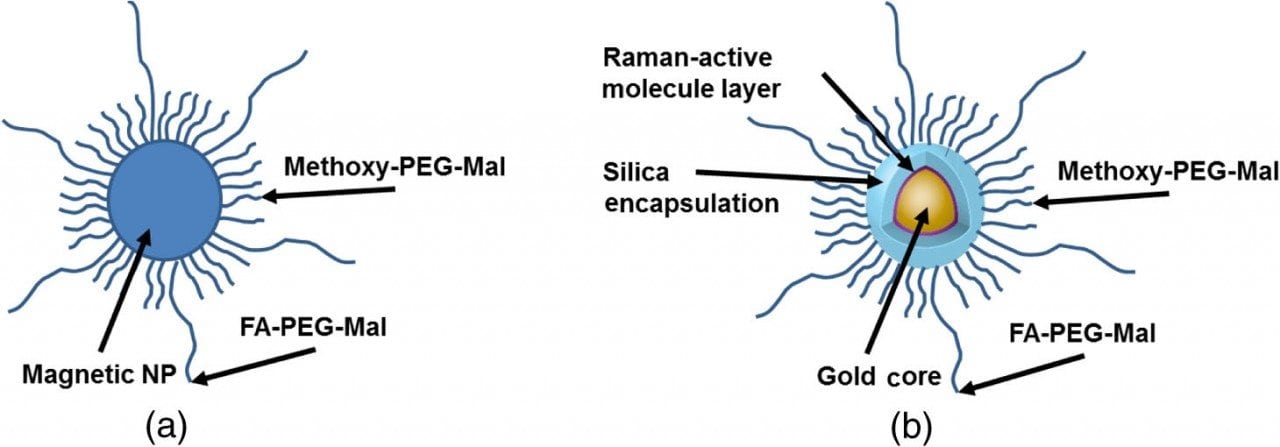Detection of circulating tumor cells using targeted surface-enhanced Raman scattering nanoparticles and magnetic enrichment

Abstract
While more than 90% of cancer deaths are due to metastases, our ability to detect circulating tumor cells (CTCs) is limited by low numbers of these cells in the blood and factors confounding specificity of detection. We propose a magnetic enrichment and detection technique for detecting CTCs with high specificity. We targeted both magnetic and surface-enhanced Raman scattering (SERS) nanoparticles to cancer cells. Only cells that are dual-labeled with both kinds of nanoparticles demonstrate an increasing SERS signal over time due to magnetic trapping.
